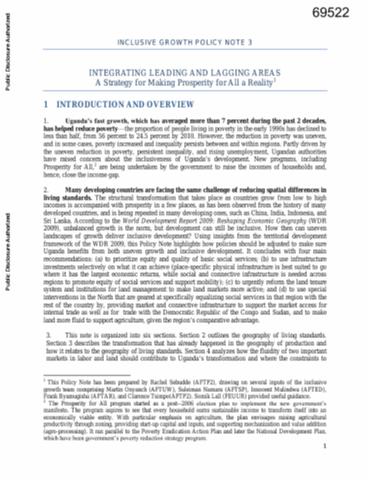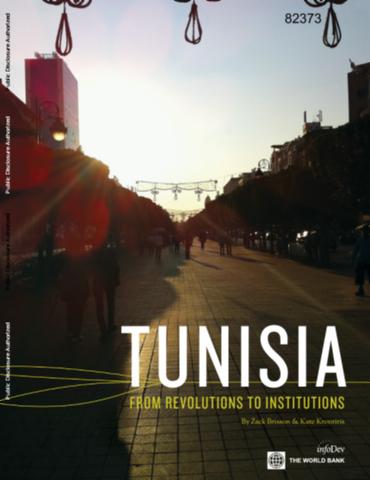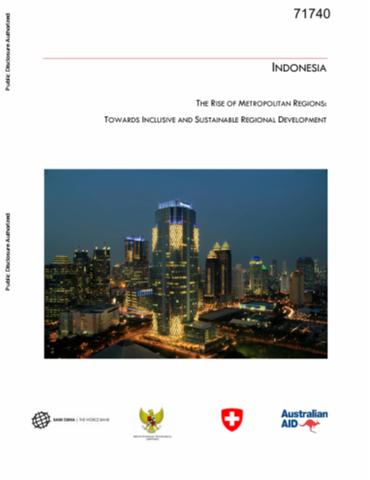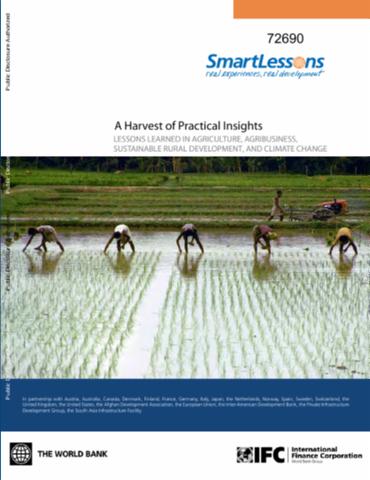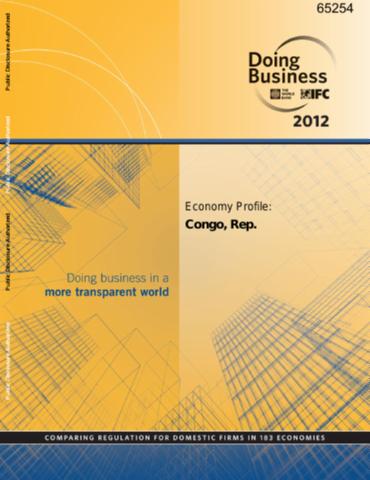The World Bank is a vital source of financial and technical assistance to developing countries around the world. We are not a bank in the ordinary sense but a unique partnership to reduce poverty and support development. The World Bank Group has two ambitious goals: End extreme poverty within a generation and boost shared prosperity.
- To end extreme poverty, the Bank's goal is to decrease the percentage of people living on less than $1.25 a day to no more than 3% by 2030.
- To promote shared prosperity, the goal is to promote income growth of the bottom 40% of the population in each country.
The World Bank Group comprises five institutions managed by their member countries.
The World Bank Group and Land: Working to protect the rights of existing land users and to help secure benefits for smallholder farmers
The World Bank (IBRD and IDA) interacts primarily with governments to increase agricultural productivity, strengthen land tenure policies and improve land governance. More than 90% of the World Bank’s agriculture portfolio focuses on the productivity and access to markets by small holder farmers. Ten percent of our projects focus on the governance of land tenure.
Similarly, investments by the International Finance Corporation (IFC), the World Bank Group’s private sector arm, including those in larger scale enterprises, overwhelmingly support smallholder farmers through improved access to finance, inputs and markets, and as direct suppliers. IFC invests in environmentally and socially sustainable private enterprises in all parts of the value chain (inputs such as irrigation and fertilizers, primary production, processing, transport and storage, traders, and risk management facilities including weather/crop insurance, warehouse financing, etc
For more information, visit the World Bank Group and land and food security (https://www.worldbank.org/en/topic/agriculture/brief/land-and-food-security1
Resources
Displaying 2946 - 2950 of 4907Integrating Leading and Lagging Areas
Uganda's fast growth, which has averaged more than 7 percent during the past two decades, has helped reduce poverty the proportion of people living in poverty in the early 1990s has declined to less than half, from 56 percent to 24.5 percent by 2010. However, the reduction in poverty was uneven, and in some cases, poverty increased and inequality persists between and within regions. Partly driven by the uneven reduction in poverty, persistent inequality, and rising unemployment, Ugandan authorities have raised concern about the inclusiveness of Uganda's development.
Tunisia
In the wake of the revolution, Tunisian society is currently undergoing a significant transformation. In late 2011, the country's first representative government in more than three decades was formed, as the Constituent Assembly was seated. Hundreds of legitimate candidates ran in an election that was free, fair, and enjoyed nearly 90 percent participation by eligible voters.
Indonesia - The Rise of Metropolitan Regions
In recent years, Indonesia has made great strides in economic growth and development. This growth has been accompanied by rapid urbanization that has transformed Indonesian cities. Urbanization has the potential to boost national economic growth by facilitating the emergence of agglomeration and localization economies. Increasing urbanization presents Indonesia with an opportunity to leverage the transformation taking place to ensure that it is harnessed for economic growth and, more importantly, sustained improvements in the quality of life of its community members.
A Harvest of Practical Insights
This IFC SmartBook is a compilation of sixteen IFC SmartLessons that presents practical lessons learned by staff from across the IFC and the World Bank on approaches for engaging in agriculture that have led to success. Agribusiness is a crucial economic sector, for food security of course, for managing water stress and ecosystem services, but also as a source of employment in emerging markets. The report includes the following lessons.
Doing Business Economy Profile 2012
Doing Business sheds light on how easy or difficult it is for a local entrepreneur to open and run a small to medium-size business when complying with relevant regulations. It measures and tracks changes in regulations affecting 10 areas in the life cycle of a business: starting a business, dealing with construction permits, getting electricity, registering property, getting credit, protecting investors, paying taxes, trading across borders, enforcing contracts and resolving insolvency.






